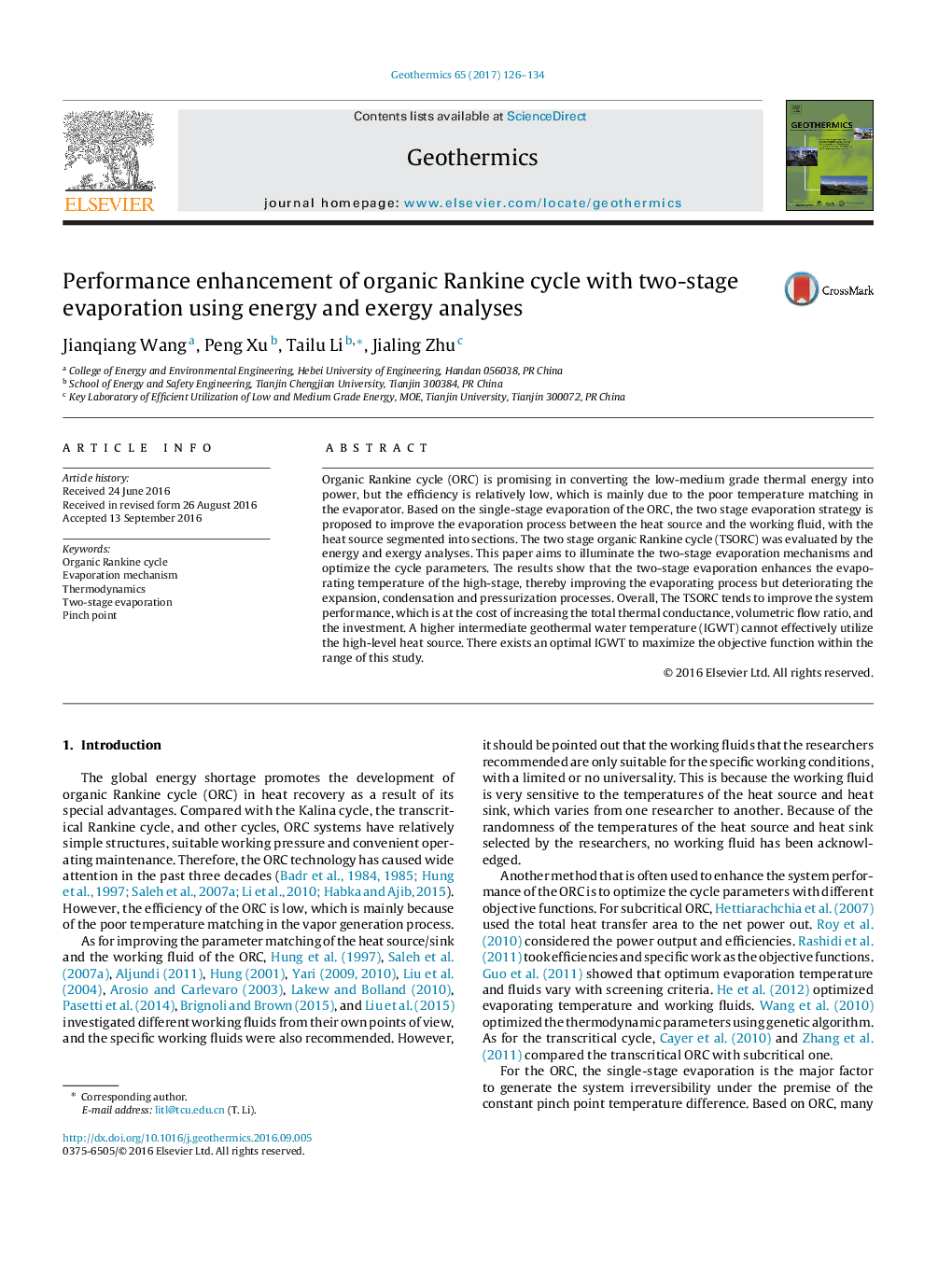| Article ID | Journal | Published Year | Pages | File Type |
|---|---|---|---|---|
| 8088747 | Geothermics | 2017 | 9 Pages |
Abstract
Organic Rankine cycle (ORC) is promising in converting the low-medium grade thermal energy into power, but the efficiency is relatively low, which is mainly due to the poor temperature matching in the evaporator. Based on the single-stage evaporation of the ORC, the two stage evaporation strategy is proposed to improve the evaporation process between the heat source and the working fluid, with the heat source segmented into sections. The two stage organic Rankine cycle (TSORC) was evaluated by the energy and exergy analyses. This paper aims to illuminate the two-stage evaporation mechanisms and optimize the cycle parameters. The results show that the two-stage evaporation enhances the evaporating temperature of the high-stage, thereby improving the evaporating process but deteriorating the expansion, condensation and pressurization processes. Overall, The TSORC tends to improve the system performance, which is at the cost of increasing the total thermal conductance, volumetric flow ratio, and the investment. A higher intermediate geothermal water temperature (IGWT) cannot effectively utilize the high-level heat source. There exists an optimal IGWT to maximize the objective function within the range of this study.
Related Topics
Physical Sciences and Engineering
Earth and Planetary Sciences
Geochemistry and Petrology
Authors
Jianqiang Wang, Peng Xu, Tailu Li, Jialing Zhu,
